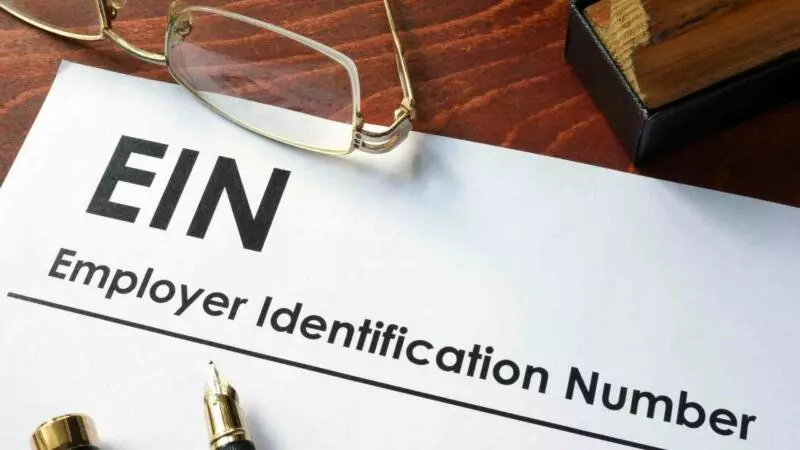Starting An LLC In The U.S. As An E-2 Visa Investor: A Step-By-Step Guide
We’ll guide you through starting an LLC in the United States as an E-2 visa investor. We’ll cover everything, from the advantages of LLC to steps to get your new business up and running.
What is an LLC?
Why should E-2 visa investors choose it?
If you’re an E-2 visa investor looking to start a business in the United States, forming a Limited Liability Company (LLC) can be a smart choice. LLCs are currently the most popular type of business structure in the United States, and the good news is that citizenship is not a requirement to form one. Whether you are a U.S. citizen or not, the process for creating an LLC in the United States is the same, making it a viable option for E-2 visa investors looking to establish a business presence in the U.S.
An LLC is a type of business entity that provides its owners, also known as members, with limited liability protection. This means the members’ personal assets are generally protected from business liabilities. In other words, if the LLC is sued or goes bankrupt, the personal assets of its members cannot be used to pay off the business’s debts. This protection can be especially important for E-2 visa investors, as it can help safeguard their assets in case of a lawsuit or other legal issues.

How is an LLC taxed?

What are LLC requirements?
An LLC is generally considered a “pass-through” entity, meaning the business is not taxed on its income. Instead, the income is “passed through” to the owners, who report it on their personal tax returns. However, depending on how the LLC is structured and its elected tax status, the LLC may be subject to additional taxes.
All LLCs must file an annual tax return with the IRS using Form 1065. This form reports the LLC’s profits, losses, and other tax-related information. The LLC owners (also known as members) will then receive a Schedule K-1 showing their share of the LLC’s income, deductions, and credits. The members will report this information on their personal tax returns.
Invest Confidently In The USA Today. Get The Best Expert Besides You.
What are the Advantages and Disadvantages of an LLC?
The LLC structure offers a unique blend of characteristics that combine the liability protection of a corporation with the flexibility and simplicity of a partnership or sole proprietorship. Below are some of its advantages:
LLC Advantages
Easy to form: Forming an LLC is relatively straightforward, and it can be done online in most states without needing an attorney. However, if you want to ensure everything is done correctly and in compliance with state laws, you may consider hiring an attorney or consultant to assist you.
Limited Liability Protection: One of the most significant benefits of forming an LLC is that it offers limited liability protection to its owners. This means that the personal assets of the LLC’s members are typically protected from business debts and legal actions against the business.
Flexible taxation options: An LLC offers several tax benefits, including the ability to choose from various tax structures. LLCs are taxed as either a sole proprietorship or partnership, meaning that profits and losses are passed through to the member’s personal income tax returns, avoiding the double taxation that corporations often face. Further, LLCs can elect to be taxed as an S-corp or C-corp, providing even more tax flexibility and potential savings.
In addition, LLCs can benefit from the Qualified Business Income (QBI) deduction, which can reduce their taxable income by up to 20%. LLCs can also write off business expenses, such as office supplies, equipment, and travel expenses, as tax deductions. The process for claiming these deductions depends on how the LLC is classified and taxed, with pass-through entities claiming deductions at the personal level and corporations claiming them at the business level.
Fewer formalities: Compared to corporations, LLCs have fewer formalities to follow. They don’t have to hold annual meetings, keep detailed records, or comply with other formalities that corporations must follow.
Credibility: An LLC can add credibility to a small business by creating a public record of the business and its use of the name. Additionally, the LLC name at the end of a company’s name can add legitimacy to the business.
LLC Disadvantages
While LLCs offer many advantages to business owners, they also have a few disadvantages to consider. These limitations may not be significant enough to outweigh the benefits, but it is important to be aware of them.
Self-employment taxes: Members of an LLC are considered self-employed and must pay self-employment taxes, which include Social Security and Medicare taxes, on their share of the company’s profits.
Cost: Setting up an LLC can be costly due to the fees associated with state-level registration. The cost can vary depending on the state and may include filing fees, initial registration fees, and other associated costs. In addition, many states require LLCs to file annual reports and pay annual fees and taxes, which can also add to a significant expense for the business.
Limited life: Unlike a corporation, which has a potentially unlimited life span, the life of an LLC is limited to the duration of its operating agreement or the departure of one of its members.
Restrictions on raising capital: LLCs may face difficulties raising capital, as they cannot sell stock or issue shares like a corporation. Investors may hesitate to invest in an LLC without the promise of equity.
State-specific rules: LLCs are governed by state laws, which can vary significantly. This can create complications if an LLC operates in multiple states, as the company must comply with the rules and regulations of each state.

How to form an LLC for E-2 visa investors?

The Step-By-Step
After reviewing the benefits and drawbacks of creating an LLC, it’s time to explore the steps in establishing an LLC specifically for E-2 visa investors.
Choose a state to form your LLC
States have different rules, regulations, taxes, and fees for forming an LLC. Research and evaluate the options available to you before making a decision. Some states, such as Delaware, have a business-friendly climate, lower taxes, and fewer filing requirements, making them a popular choice for LLC formation.
However, keep in mind that choosing a state solely for tax purposes may not be the best decision for your business, as other factors, such as accessibility to resources, industry regulations, and business culture, can also significantly impact your success. Ultimately, it would be best to consider all factors before deciding which state to form your LLC.
Decide on a business name
Choosing a business name is a crucial step when forming an LLC. Your state won’t allow you to select a name that’s already in use by another business within the state, and certain words may be prohibited, such as “insurance” or “banking.” It’s also typical to include “LLC” or “limited liability company” at the end of your business name. You can check the availability of your desired name by doing a name search on the website of the state agency responsible for business filings.
If you decide to use a different business name or a doing business as (DBA), you should ensure that the name is not already in use and complies with your state’s requirements. A DBA, also known as a “fictitious business name” or “trade name,” is an alternative name that businesses can use to operate under.
Appoint a registered agent
A registered agent is a person or entity designated to receive legal documents and important notices on behalf of your business. In most states, your registered agent must be a resident of the state or a business entity authorized to do business in the state. You can appoint a registered agent service to act as your LLC’s registered agent. These services typically charge a fee but can be a convenient option for LLCs without a physical presence in the state or for those who prefer to keep their personal information private.
While it is legally possible to act as your own registered agent, it may not be the best option for everyone. If you choose to act as your registered agent, remember that your personal information will become a public record. Additionally, if you are not well-versed in local laws and regulations, managing the legal paperwork that comes with being a registered agent may be difficult.
File Articles of Organization
To legally form an LLC, you’ll need to file Articles of Organization with the state agency responsible for business filings. The document typically requires basic information about your LLC, such as its name, business address, and the name and address of its registered agent. It may also include information about the LLC’s management structure and the names of its members. The filing fee for the Articles of Organization varies by state, so be sure to check your state’s specific requirements and fees.
Obtain an EIN
An EIN is a unique nine-digit number that identifies your business for tax purposes. It’s similar to a Social Security number but for your company. You’ll use your EIN to file taxes, open business bank accounts, and hire employees. You can apply for an EIN through the IRS website, and the process is free and relatively straightforward. Once you receive your EIN, be sure to keep it in a safe place and use it for all of your business-related tax filings and documents.
Create an operating agreement
When forming an LLC, it’s essential to create an operating agreement. This agreement outlines the ownership and operating procedures of the LLC, and it helps to establish the separation between the LLC and its owners. Even if your state doesn’t require it, an operating agreement can help you avoid disputes and potential legal issues. Your operating agreement should address the following:
Ownership structure
Member Responsibilities
Capital contributions
Voting rights
Management structure
Dissolution
Having an attorney and consultant review your operating agreement is a wise decision to make sure it is legally enforceable and includes all the required information.
Other Important Tasks When Creating An LLC
Is an LLC Right for Your Business?
Acquire the necessary licenses and permits for your business
Licenses and permits are required by law to ensure that your business operates legally and meets all the necessary regulations and standards. The specific licenses and permits you need depend on the type of business you operate and the location where you conduct business. Examples of licenses and permits include business, health, environmental, and zoning permits.
Research and identify the specific licenses and permits required for your business and obtain them before starting operations. Failing to acquire the necessary licenses and permits can result in fines, penalties, and legal troubles that can negatively affect your business’s success.
Register your business to operate in other states
If you plan to do business in states other than where your LLC is formed, you may need to register with those states as a foreign LLC. This process is known as foreign qualification and typically involves filing paperwork with the state’s Secretary of State and paying a fee. Registering as a foreign LLC allows you to legally conduct business in that state.
Separate your personal and business assets
Separating your personal and business assets means keeping your personal and business finances separate. This is crucial to protecting your personal assets in case of any legal issues or debts that may arise from your business. You should establish a separate business bank account, obtain a business credit card, and keep accurate records of all financial transactions related to your LLC. By doing this, you can help ensure that your personal assets, such as your home, car, or personal savings, are not at risk if your LLC faces financial or legal problems.
Forming an LLC can offer several benefits for small business owners. LLCs provide the protection of personal assets that a corporation offers but with fewer formalities and greater flexibility in tax options. Choosing to structure your business as an LLC also allows for pass-through taxation, which can provide potential tax savings. However, it’s important to remember that every LLC is unique, and it’s recommended to seek legal advice to ensure that you make informed decisions when selecting tax status. By taking the necessary steps and being mindful of the requirements, forming an LLC can provide a solid foundation for your business’s success.
As you embark on your journey to start your LLC, it’s important to get every element of the business right. From finding the right business for your E-2 visa, creating a foolproof business plan, and preparing your E-2 visa application to set up your E-2 business, we are here to help you. At E2VisaFranchises.com, we specialize in creating and helping you find the best investment and get your E-2 visa approved. Contact us today to learn more and get started on your path to success!

